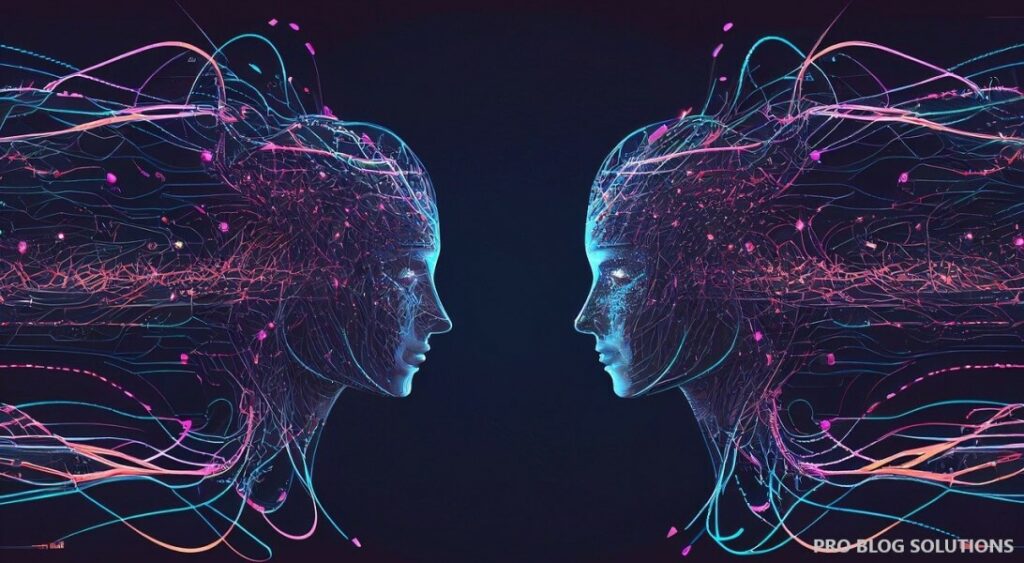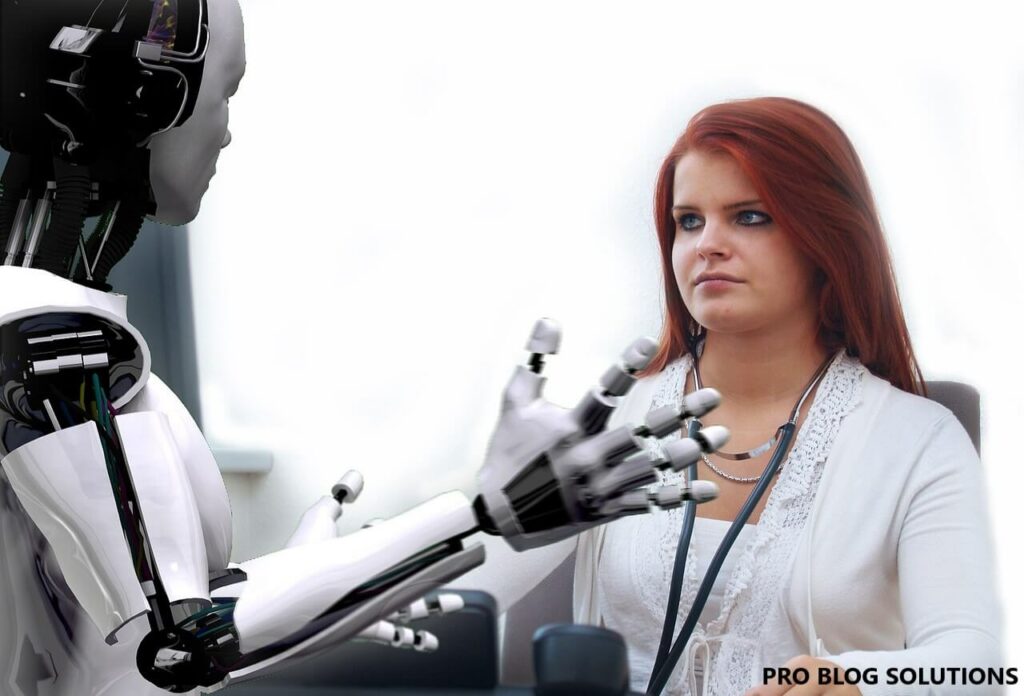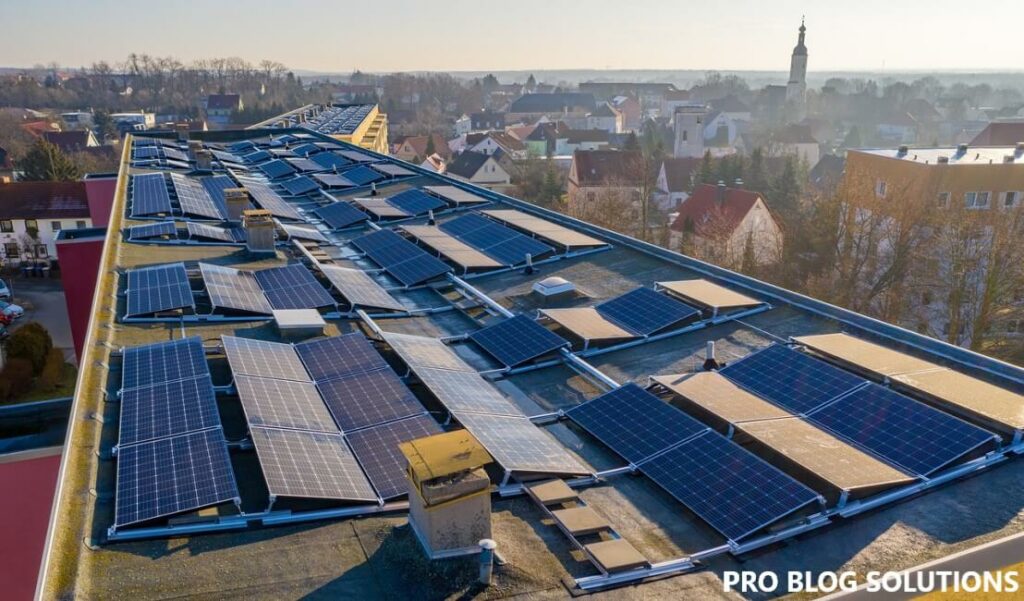Technology is evolving faster than ever before, and the impact of new emerging technologies development has the potential to change the world in ways we never thought possible.
From AI and robotics to blockchain and biotechnology, emerging technologies can transform our lives in 2025 and the coming years.
This article will explore the latest emerging technologies that will change the world.
What are Emerging Technologies?
In a basic sense, the term “emerging technologies” acknowledges how developments in tech often occur in the blink of an eye.
The upheaval of what we associate as the “norm” (how we use the internet, what devices we interact with daily, etc.) happens more often than we realize.
In the past, for example, we’ve become accustomed to voice-activated cloud services like Alexa and have familiarized ourselves with video chat software like Zoom.
As this year ends, we naturally remain aware of how our world evolves. Some of these emerging technologies may be familiar to you; some may exist in your periphery. Some, you might realize, are new or unfamiliar to you.
An important note, however, is that not all emerging technology is “new” in the strictest sense of the word. In many cases, “emerging” means that existing technology has become prominent through modern developments and innovations, leading to new uses.
Let's Explore Some Facts to Understand How Emerging Technologies Will Change the World in 2025:

Here are some facts to understand how emerging technologies will change the world:
Emerging technologies are advancing at a rapid pace. This is due to several factors, including data's increasing availability, new computing hardware development, and the growing interest in artificial intelligence.
They have the potential to disrupt many industries. For example, artificial intelligence is already being used to automate manufacturing, healthcare, and customer service tasks. As these technologies continue to develop, they will likely majorly impact how we work and live.
Emerging technologies have the potential to create new jobs. While some jobs may be lost to automation, new jobs will be created by developing and applying these technologies. For example, artificial intelligence is proliferating, with a high demand for skilled workers.
These technologies have the potential to improve our lives in many ways. For example, they can be used to improve healthcare, education, transportation, and environmental sustainability. However, there are also some potential risks associated with these technologies, such as the potential for job displacement and the misuse of data.
It is essential to be aware of the potential impact of emerging technologies to prepare for the changes they will bring.
We must ensure that these technologies are used responsibly, benefiting everyone.
You may also like to read:
- Best Blogging Tools and Platforms to Be Successful
- Ways to Earn Money Online Without Paying Anything
- Tips to Start a Successful Food Delivery Business
- 130+ Easy Businesses You Can Start With No Money
- Latest Ways to Make Money Online this Year
The technologies discussed in this article represent some of the most promising innovations in science and technology today.
They offer exciting possibilities for profoundly transforming the world, from improving healthcare to mitigating climate change.
However, their success will depend not just on their technical capabilities but on our ability to harness their potential in a way that benefits society.
By approaching these technologies with caution, responsibility, and a commitment to equity and sustainability, we can create a brighter and more just future for all.
So, after understanding these facts, let's continue with the list of top emerging technologies that will change the world in 2025.
1: Artificial Intelligence (AI)

Artificial Intelligence is one of the most exciting and rapidly evolving fields of technology.
AI is already transforming many industries, including healthcare, finance, and transportation.
The potential applications of AI are vast, from autonomous vehicles to predictive analytics in healthcare.
As AI technology becomes more sophisticated, it will continue revolutionizing how we live, work, and interact with the world around us.
2: Robotics

Robotics technology is advancing rapidly, with robots becoming increasingly sophisticated and capable of performing tasks once impossible for machines.
From manufacturing and logistics to healthcare and education, robots are being used to enhance productivity and efficiency.
The potential applications of robotics technology are vast, and we will likely see robots playing an increasingly important role in many aspects of our lives in the coming years.
3: Biotechnology

Biotechnology is another technology field that is rapidly evolving, potentially transforming how we live and work.
Its advances enable new treatments for diseases, enhance food production, and create new materials with unique properties.
Biotechnology is also increasingly important in environmental sustainability, with innovations such as biodegradable plastics and biofuels.
4: Extended Reality
Extended Reality (XR) encompasses virtual reality (VR), augmented reality (AR), and mixed reality (MR), creating immersive experiences applicable to diverse domains like gaming, training, and education.
VR, for instance, could serve as a training tool for surgeons or offer pain relief to patients.
AR might assist workers in assembling intricate products or navigating complex environments.
MR overlays digital data onto the physical world, affording users fresh insights and capabilities.
5: Quantum Computing

Quantum computing is a revolutionary technology that can transform many industries, from finance and logistics to healthcare and cybersecurity.
Quantum computers can process information at an unprecedented speed, making them ideal for complex calculations and data analysis.
As quantum computing technology develops, we will likely see many new applications and use cases emerge.
Imagine quantum computing driving the development of novel pharmaceuticals, crafting innovative financial models, and engineering materials boasting unprecedented properties.
Although still in its infancy, this technology holds the potential to address some of humanity’s most intricate challenges.
6: Nanotechnology

Nanotechnology is the science of manipulating matter at the atomic and molecular levels.
It can revolutionize many industries, from medicine and electronics to energy and environmental sustainability.
Nanotechnology is already being used to create new materials with unique properties, such as more robust and lighter materials for aerospace and transportation applications.
7: Augmented Reality (AR)

Augmented Reality is a technology that overlays digital information onto the physical world.
It can transform many industries, from gaming and entertainment to healthcare and education.
AR is already being used in many applications, such as retail, to enhance the shopping experience or provide better visualization of medical procedures in healthcare.
8: Blockchain

Blockchain technology is a decentralized digital ledger that records transactions securely and transparently.
It can transform many industries, from finance and supply chain management to voting and identity management.
Blockchain can be deployed to trace the supply chain of goods, devise innovative financial instruments, and pioneer novel voting systems.
Blockchain technology is already being used in many applications, such as in cryptocurrencies like Bitcoin and Ethereum.
9: Internet of Things (IoT)

The Internet of Things is a network of connected devices and sensors that can communicate with each other and the Internet.
It can transform many industries, from healthcare and agriculture to transportation and logistics.
IoT is already used in many applications, such as smart homes and cities, to enhance efficiency and sustainability.
IoT devices are also deployed to track asset locations and oversee industrial processes. Although still in its infancy, this technology harbors the potential to redefine how we live and work.
10: 3D Printing

3D Printing is a technology that enables the creation of three-dimensional objects by layering materials on each other. It can transform many industries, from manufacturing and aerospace to healthcare and construction.
3D Printing is already being used in many applications, such as prototyping and customized manufacturing.
Recommended for you:
- Things Google Doesn’t Like and How to Avoid Them
- How to Start a Successful Online Delivery Business
- 10 Best Skype Alternatives for Everyone
- Top 10 Best Chrome Extensions for Bloggers (FREE)
- New Blog Ideas to Promote a Product and Increase Revenue
11: Renewable Energy

Renewable energy is a technology that harnesses natural resources such as wind, solar, and geothermal energy to generate electricity.
Renewable energy has the potential to transform the way we produce and consume energy, reducing our dependence on fossil fuels and mitigating the impact of climate change.
As renewable energy technology develops, we will see widespread adoption and integration into our energy systems.
12: Edge Computing
Edge computing introduces a decentralized computing paradigm, positioning computation and data storage closer to data sources like IoT devices and sensors.
This approach aims to enhance performance and diminish latency across various applications.
Consider scenarios where edge computing processes real-time data from autonomous vehicles or analyzes data from industrial sensors to avert operational downtime.
While emerging, this technology could catalyze novel and inventive applications unattainable through conventional cloud computing.
Final Words on Emerging Technologies that Will Change the World in 2025
The emerging technologies discussed in this article can profoundly change the world. From AI and robotics to biotechnology and renewable energy, these technologies are advancing rapidly, and their impact will be felt across many industries and aspects of our lives.
As we move forward, it will be essential to consider these technologies' ethical, social, and environmental implications and ensure that they are used to benefit humanity.
By embracing these technologies and using them responsibly, we can create a brighter and more sustainable future for ourselves and future generations.
However, it is essential to note that any emerging technology must address potential risks and challenges. For example, AI and robotics could lead to job displacement, and there are concerns about data privacy and security with IoT and blockchain.
Therefore, we must approach these technologies cautiously and ensure they are developed and implemented responsibly and ethically.
They offer exciting possibilities for improving our lives and addressing some of the world’s most pressing challenges.
Additionally, it is crucial to recognize that emerging technologies must be developed and adopted in a vacuum. Their success and impact will depend on various factors, such as government policies, public perception, and investment in research and development.
Therefore, we must work together as a global community to support and promote the responsible development and adoption of emerging technologies.
However, we must approach these technologies responsibly, ensuring they are developed and adopted ethically and equitably. By doing so, we can harness the power of technology to create a better future for all.






